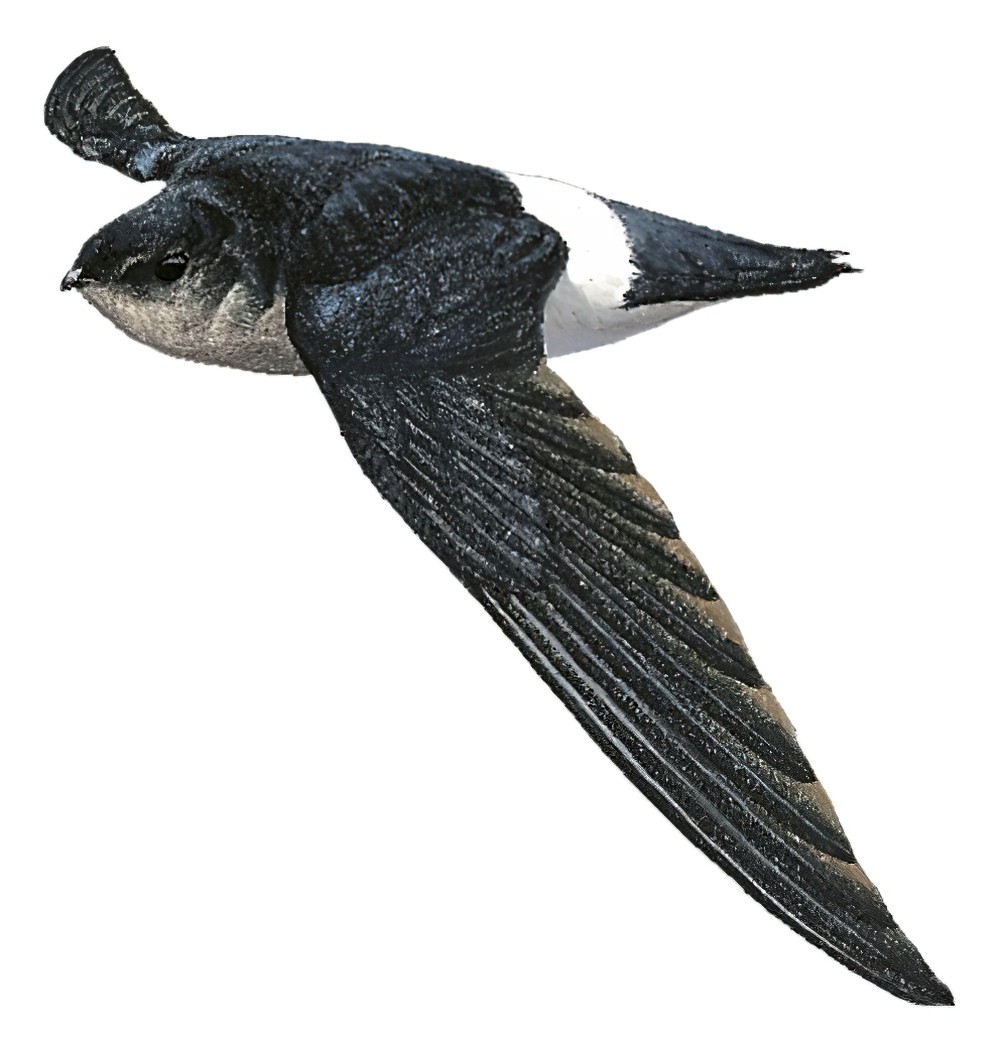White-rumped Needletail / Zoonavena sylvatica

White-rumped Needletail
SCI Name:
Protonym: Acanthylis sylvatica J.Asiat.Soc.Bengal 15 p.284
Taxonomy: Caprimulgiformes / Apodidae / Zoonavena
Taxonomy Code: whrnee1
Type Locality: Central India, restricted to Maunbhum by Whistler and Kinnear, Journ. Bombay Nat. Hist. Soc, 38, 1935, p. 33.
Author: Tickell
Publish Year: 1846
IUCN Status: Least Concern
DEFINITIONS
ZOONAVENA
(Apodidae; Ϯ Madagascar Spine-tail Swift Z. grandidieri) Genus Zoonava Mathews, 1914, swiftlet; L. suffix -ena relating to (cf. Gr. ζωον zōon creature; L. advena stranger); "The last form I will discriminate is perhaps more interesting than any of the others, as it suggests the keynote to the solution of the evolution of the Spine-tailed Swifts. This is Chætura grandidieri Schlegel, which lives at Madagascar. Superficially in every detail, save its tail, it is a "Collocalia" of the Zoonava group. It absolutely agrees in detail as to coloration and, moreover, has the nostrils placed as in the "Collocalia" group, not as in the "Chætura" typical series. Further, the second primary appears to be longest, which is a character of the former, but not of the latter. The superficial resemblance is so great that it possesses a MS. name showing its determination as a "Collocalia." A natural classification will almost certainly prove that is its nearest relationship and that the evolution of the Spine-tail is more recent than the acquisition of plumage coloration. To initiate this quest, I propose to give it the new generic name ZOONAVENA with type Zoonavena grandidieri (Schlegel). The tail-feathers are stiff, but the needle-points are quite minute." (Mathews 1918); "Zoonavena Mathews, Bds. Austr., 7, 1918, p. 265. Type, by original designation and monotypy, Chaetura grandidieri Schlegel, i.e. Verreaux." (Peters, 1940, IV, p. 241).
Synon. Indicapus.
sylvatica / sylvaticum
L. silvaticus of the woods, wild < silva woodland, forest.
● ex “Courlis vert de Cayenne” of d’Aubenton 1765-1781, pl. 820 (syn. Mesembrinibis cayennensis).
UPPERCASE: current genus
Uppercase first letter: generic synonym
● and ● See: generic homonyms
lowercase: species and subspecies
●: early names, variants, mispellings
‡: extinct
†: type species
Gr.: ancient Greek
L.: Latin
<: derived from
syn: synonym of
/: separates historical and modern geographic names
ex: based on
TL: type locality
OD: original diagnosis (genus) or original description (species)












